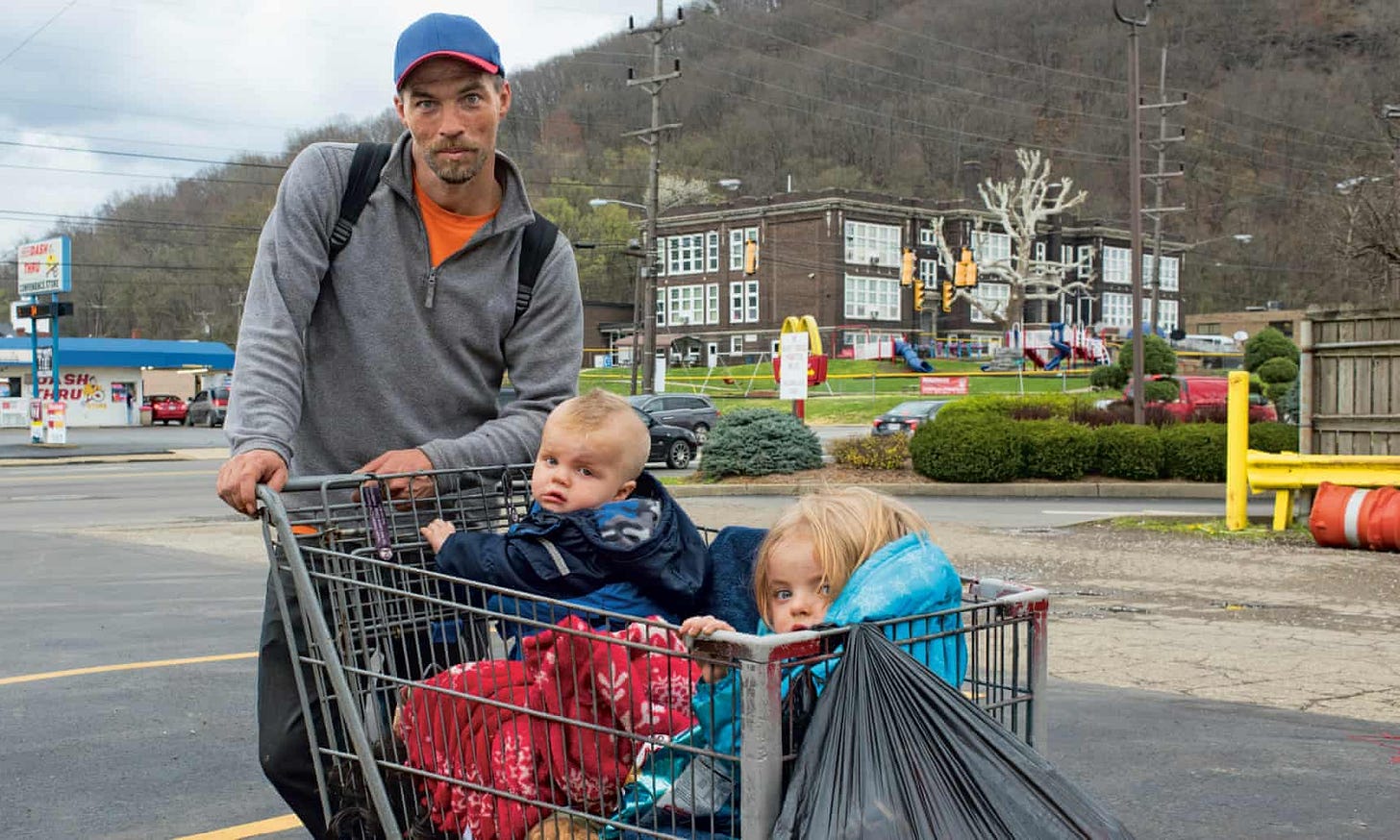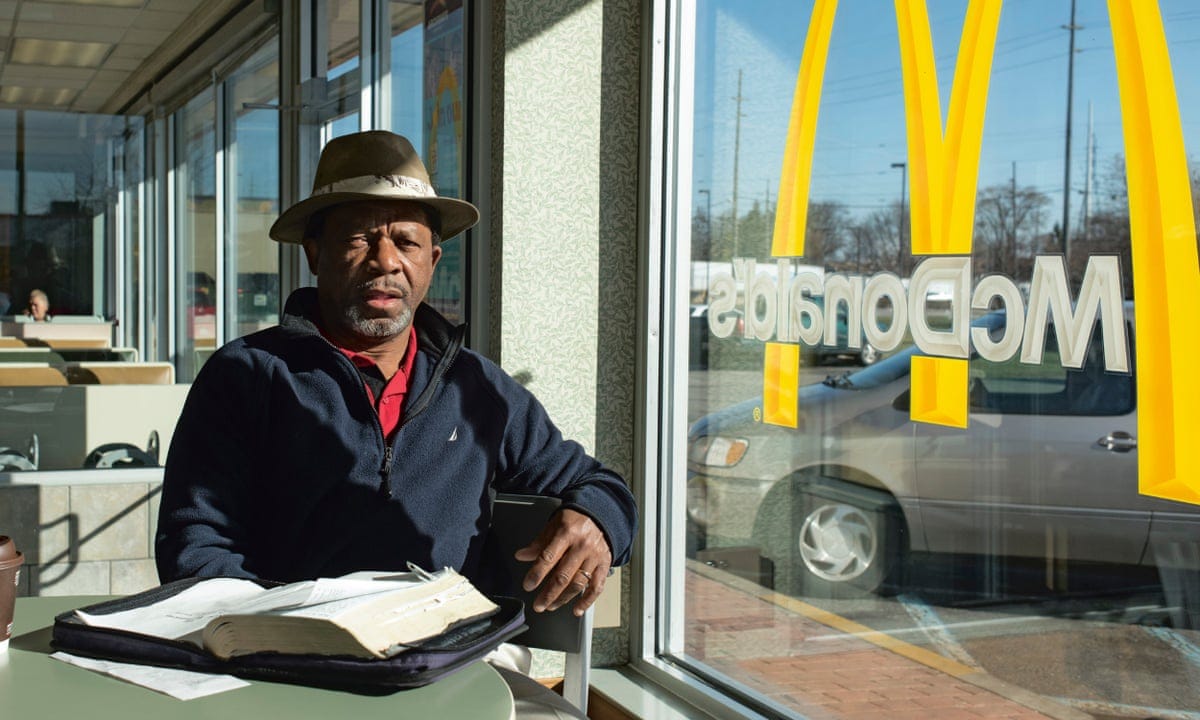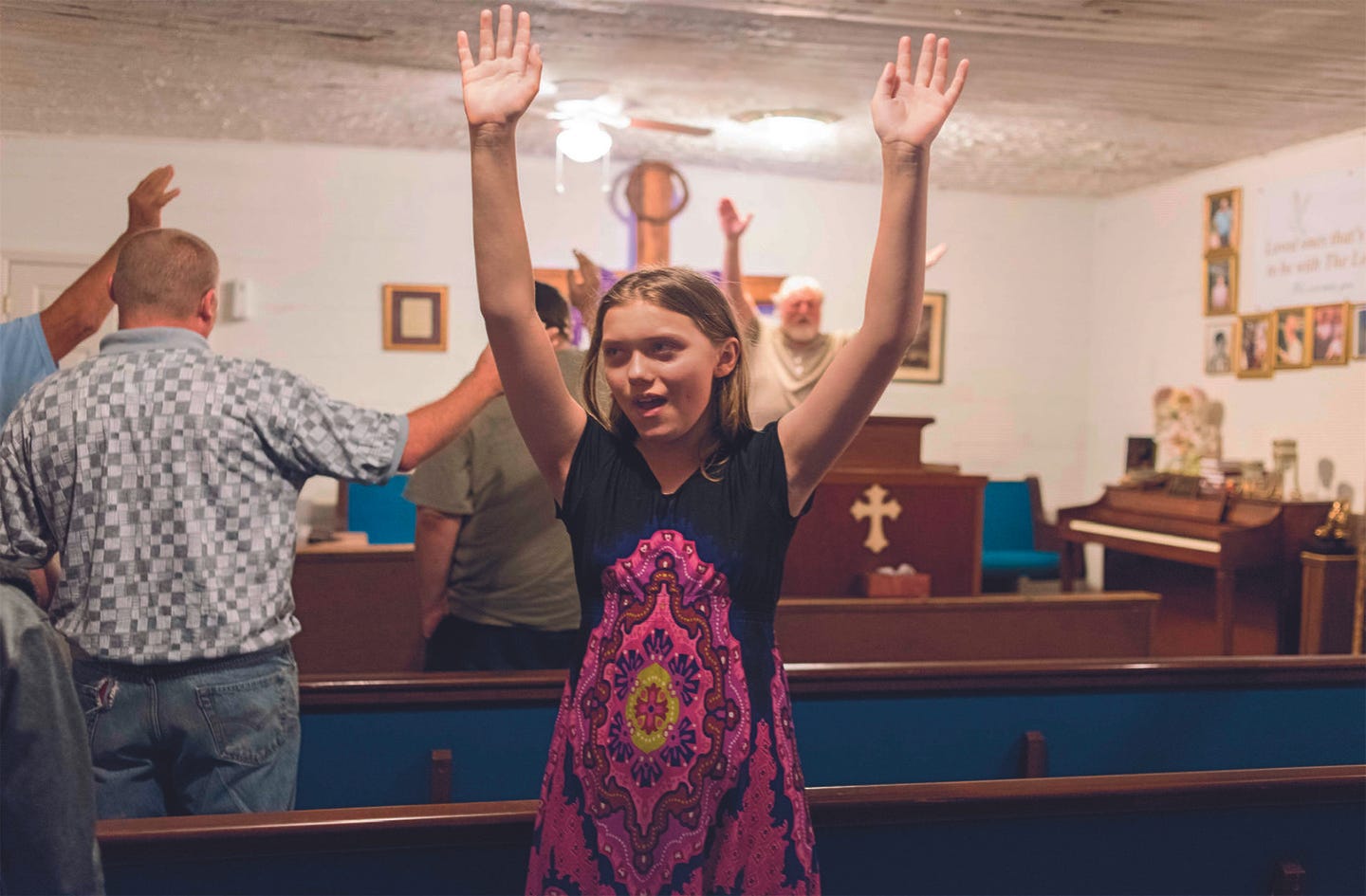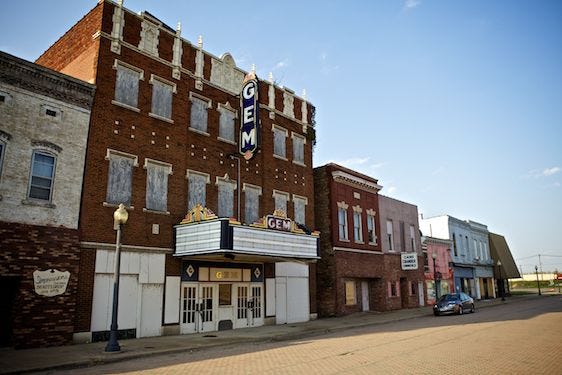Dignity.
The Future Does Not Fit in the Containers of the Past. Edition 76.
Dignity is the right of a person to be valued and respected for their own sake, and to be treated ethically. It is of significance in morality, ethics, law and politics as an extension of the Enlightenment-era concepts of inherent, inalienable rights. The term may also be used to describe personal conduct, as in "behaving with dignity" (Wikipedia)
Marcel Proust wrote that it is “not to visit strange lands, but to possess other eyes that is the only true voyage”. A writer/photographer named Chris Arnade opens eyes we may not have seen with.
Chris has written a book which might be about an "other world" but is really about humans and our quest for identity, belonging and meaning.
Chris Arnade received a PhD. From John Hopkins University in Physics and for 20 years worked at as a trader at Wall Street banks.
He left all of this behind and began a three-year journey across America driving 150,000 miles talking with and taking photographs of an America that is very real but few of us get to see or interact with. Millions of people who despite being stigmatized, ignored, or made fun of are fighting to maintain dignity.
Chris distilled his words and edited his photographs into a book: Dignity: Seeking Respect in Back Row America (The book was completed before Covid-19)
It is two books fused into one. One is a series of conversations with a spectrum of individuals across America who are forgotten, invisible and on the outskirts of our minds and another a spectrum of amazing photographs that bring these people to life.
The subjects of the photograph seem to be saying:
Take our picture.
Tell our story.
We are here.
We matter.
The book is “about re-considering what is valuable, about honoring the aspects of life that cannot be measured, and about an attempt to listen and look with humility”
Regardless of what your beliefs are as you start this book you are likely to re-visit them by the time you finish it.
The Importance of McDonald’s.
As Chris travels across America, he finds that in many places the center of the community of Back-Row America is the local McDonald’s. It is a place where people come to connect, to gossip, to celebrate, to meet before and after games, to read the Bible, to use the facilities and to stay warm.
An entire series of photographs are centered around McDonald’s.
Everyone seems to know how far the nearest McDonald’s is and in some instances Walmart. These two corporations which are often looked upon by skepticism by Front Row America are critical, essential, and deeply popular in much of the country.
Everything is not under control.
The book tells and brings alive the story of people bearing the brunt of loss of jobs due to globalization. People dealing with childhood trauma and racism, and then being unable to progress due to the lack of credentials and the lack of mobility due to need to stay close to those they love, or they lack the resources to up and go.
The book is “about how you see yourself in the world, it’s about being physically strong when everyone now values being smart. It’s about caring about place and family when everyone values career. It’s about faith when everyone now values science or liking McDonald’s when everybody says it’s bad”
It is about how the self-perpetual cycle of rejection, isolation and drugs increasingly tear the fabric of community and the collateral damage of “optimizing by maximizing/minimizing versus doing the right thing”.
Losses are more than numbers on a spreadsheet.
The Role of Religion in Belonging.
Some of Back Row America finds solace in drugs and many find it in religion.
As the author notes: “In religion they found someone that treated them as humans and even though they were judged for their past decisions they were accepted. You are welcome as long as you try.”
“The cold, secular world of the well intentioned is a distant and judgmental thing. That world has given them seemingly nothing but pain. Faith is a reality and source of hope. Science does not do much.”
A World Apart.
At the end Chris Arande reminds Front Row America “that we have removed ourselves physically and in spirit from much of the country and when we look back, we do it through papers and books filled with data.”
He goes on to note that “we have implemented policies that focus narrowly on one value of meaning which is the material. We emphasize GDP and efficiency, those things that we can measure, leaving behind those that are harder to quantify-like community, happiness, friendship, pride, and integration.
And if economics and material goods are the primary form of valuation then education is the way out implying that those who do not make it are dumb, lazy, and stupid.” And education is harder to get , more expensive and the elite schools a luxury good that resemble “Hermes” bags.
He warns that “this has ensured that all those at the bottom, educationally and economically-black, white, gay, straight, men and women feel excluded, rejected and most of all humiliated”
We have denied many their dignity, leaving a vacuum easily filled by drugs, anger, and resentment.
The Way Ahead.
The book does not believe the challenges can be solved by Government nor does it lay out any specific policies.
The author asks instead that everyone open their eyes and hearts and look around.
Seek to connect and understand different perspectives and people and be aware of what we may not see.
He ends by noting “We need everyone-those in the back row and those in the front row-to listen to one another and try to understand one another and understand what they value and be less judgmental”
Reading this book and looking at the pictures is one way to begin this journey.
Photographs by Chris Arnade.
Rishad Tobaccowala is an author, educator, speaker and advisor. More here: https://rishadtobaccowala.com/










Thank you, Rishad, for an inspiring overview of this great book about a very important topic. I think feeling useful, valued & hopeful helps people, regardless of their social status, to live with more dignity. Creating opportunities at school, work, etc., for people, especially young ones, to find purpose to be useful could help promote a greater sense of compassion & dignity in the world.
Thank you, Rishad. Great Sunday morning inspiration. And thanks, Mark, for doing the homework. Hadn’t planned to buy but can’t beat the price. It will be sitting on my coffee table next to The Americans (photo book from the 50s).